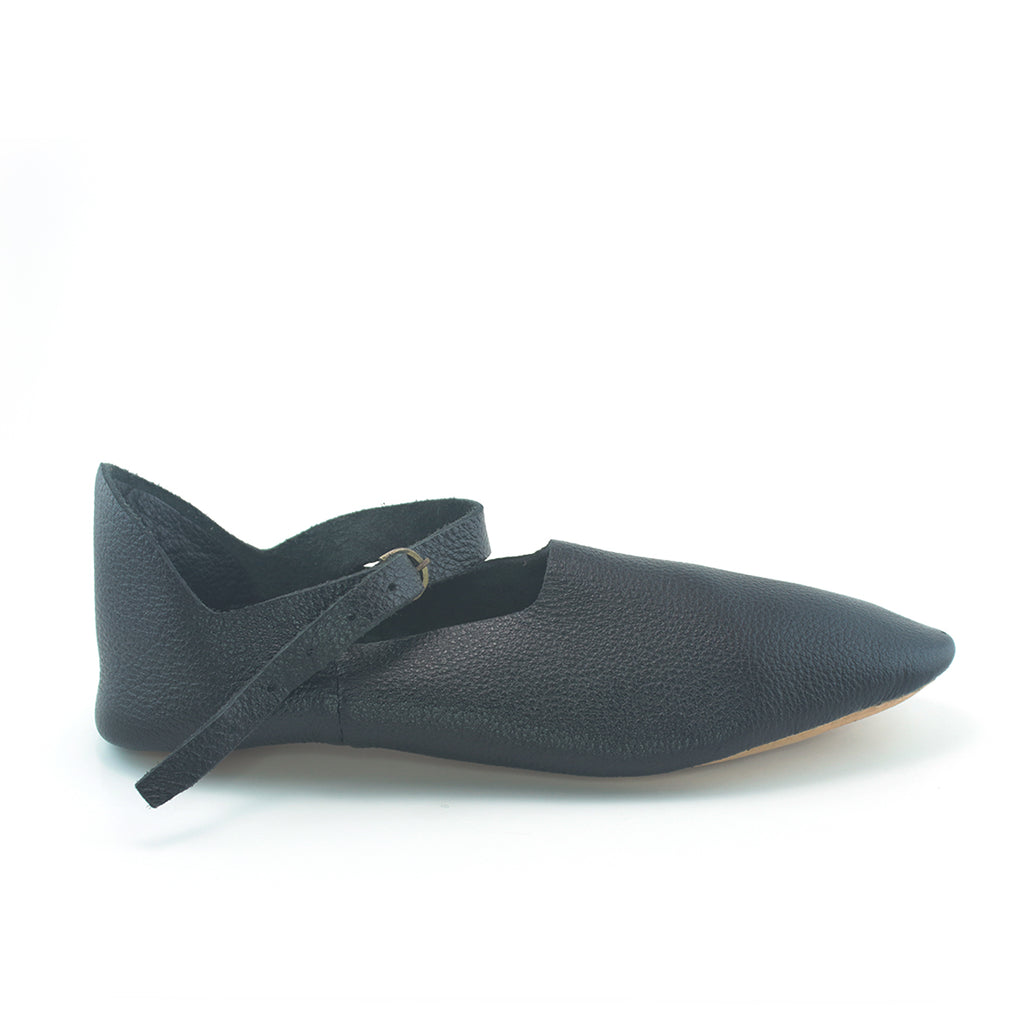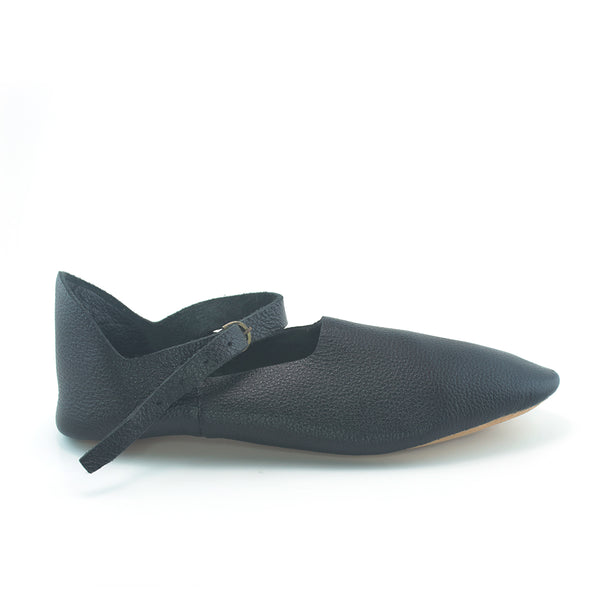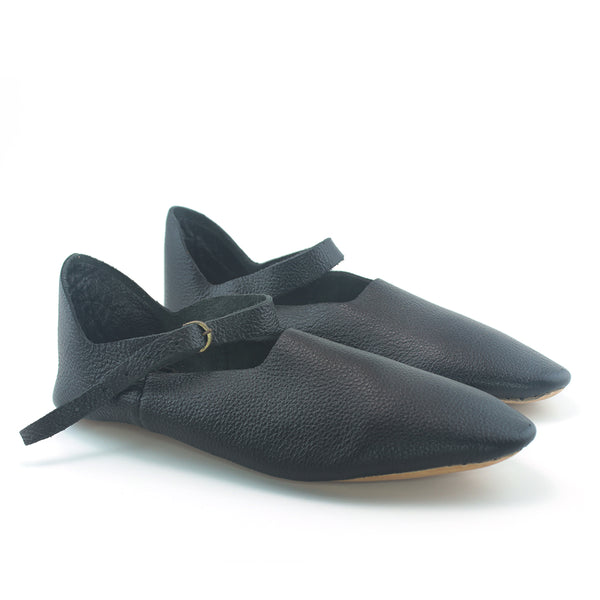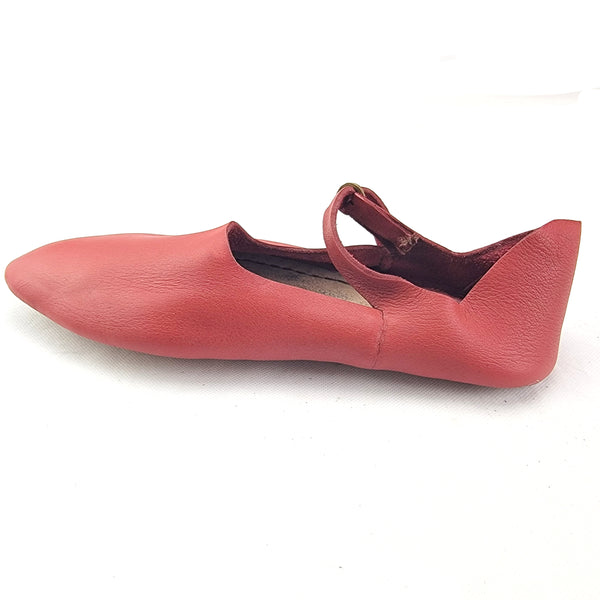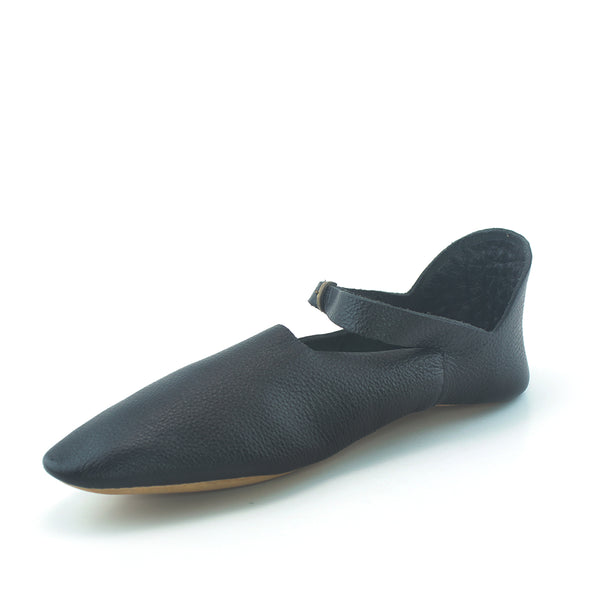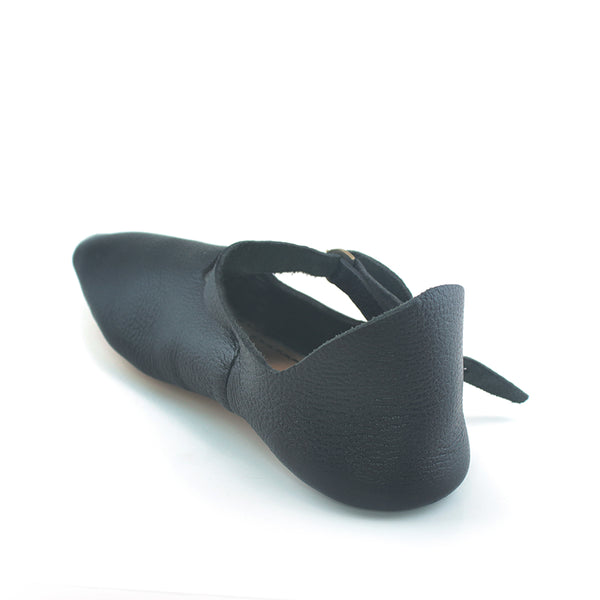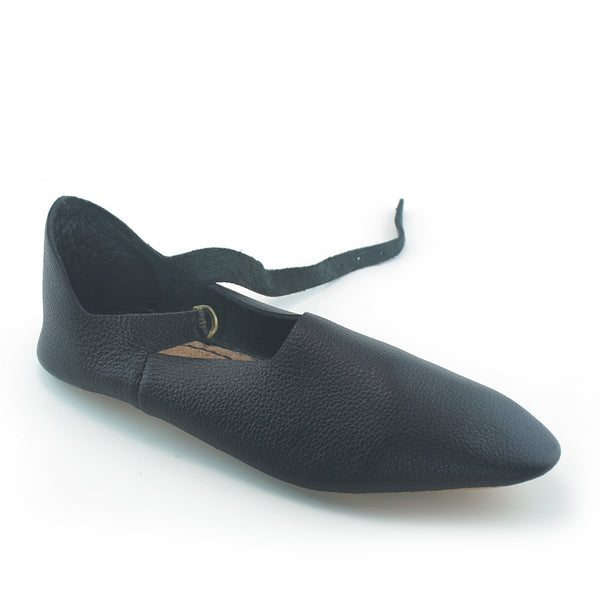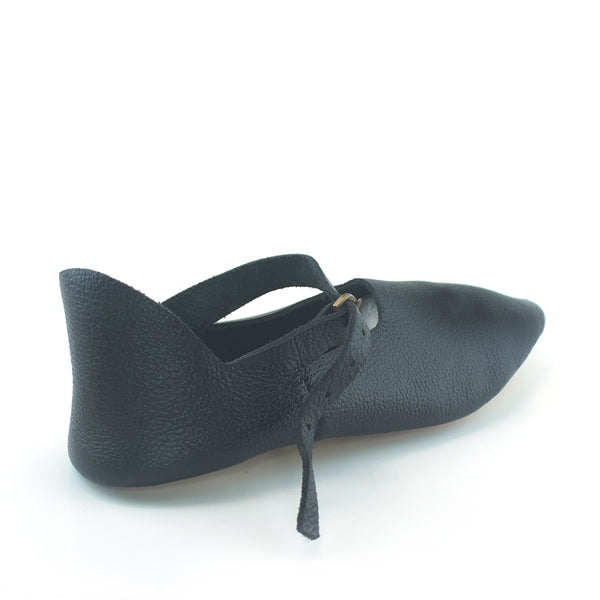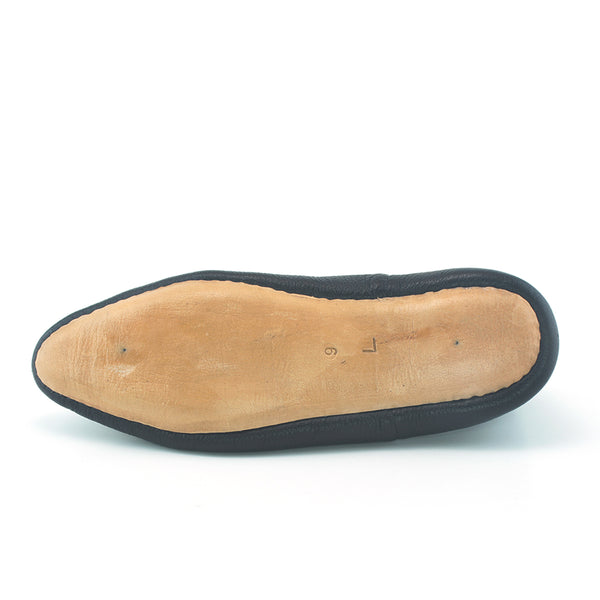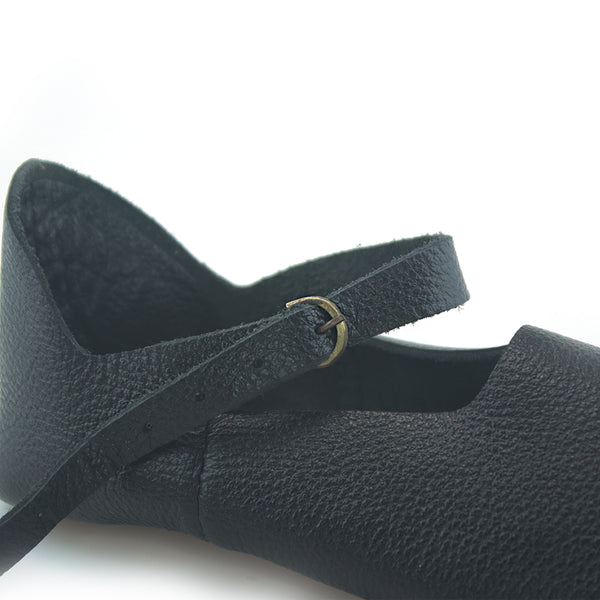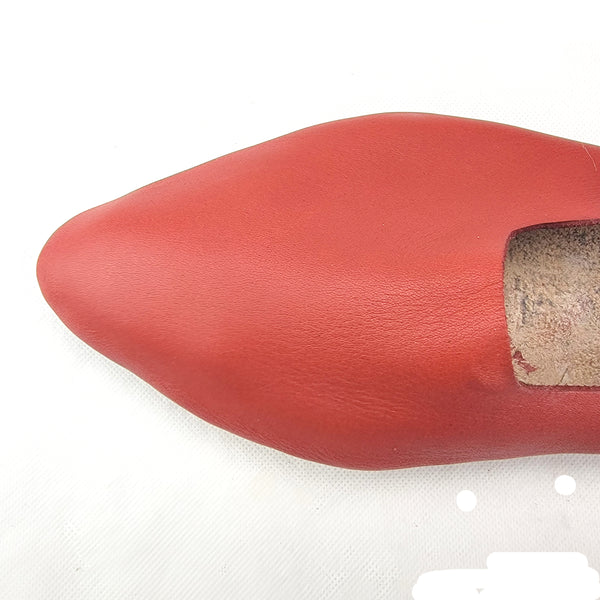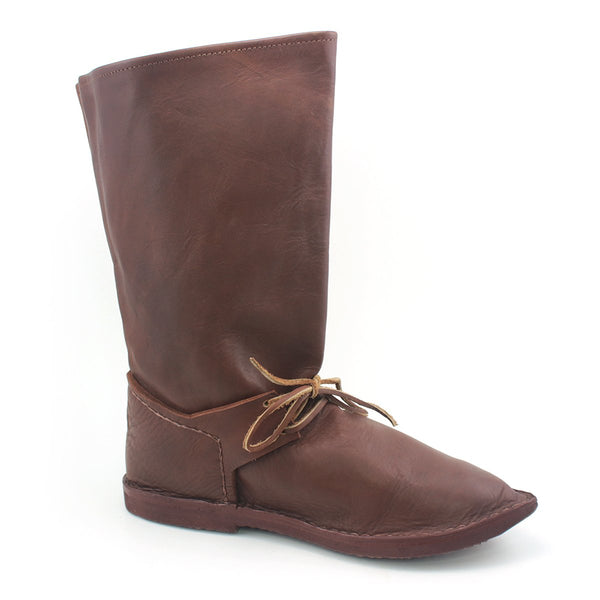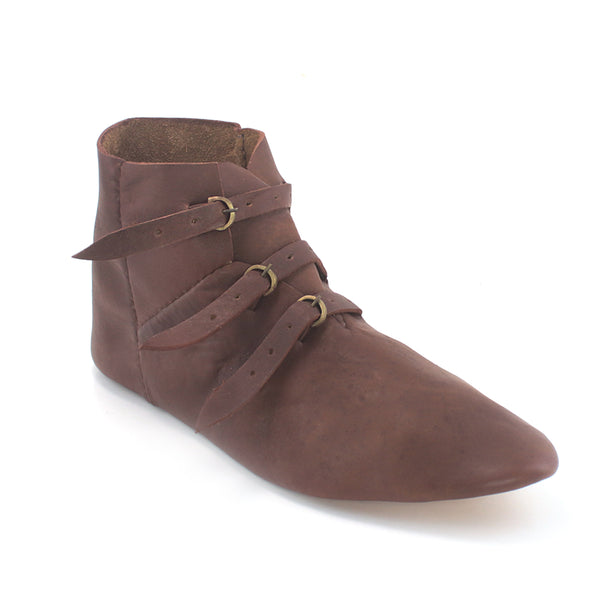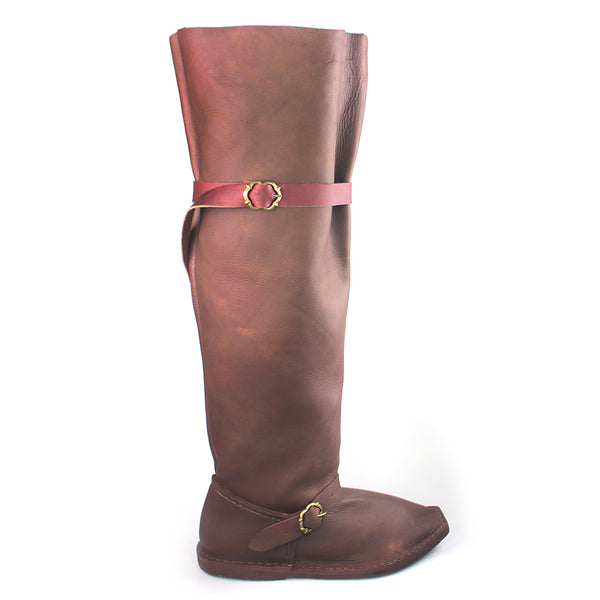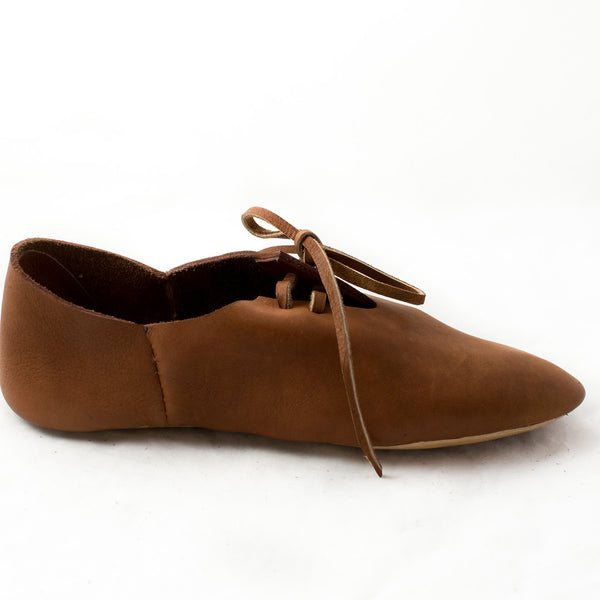14th Century Medieval Turn Shoes Women and Men
14th Century Medieval Turn Shoes are a great addition to any medieval or SCA garb, LARP, Renaissance Fairs, and Cosplay, but also as historically accurate medieval footwear for Men and Women, perfect for the strictest of reenactment groups.
Product Details :
- Available in black only
- 100% constructed and sewn by hand
- Made of real leather with vegetable tanned leather soles
- Comes in a range of sizes from lady’s 4 – men’s 15
- Full Sizes only, Women should round down, Men round up for 1/2 size.
- Brass cast buckle from Dress Accessories by the Museum of London
- Optional Lugged, anti-slip or crepe soles are NOT available for the 14th Century Medieval Turn Shoes.
Add Ons: Shoe is slippery on slick surfaces.
- Best when worn with Pattens, Pattens are a historical wooden overshoe!
- Waterproof with Sno-Seal
- Leather Care with Mink Oil
Returns and Exchanges: You may return shoes for absolutely any reason within 30 days of receipt for your choice of an exchange for different size or style, store credit or refund. See my Returns and Exchanges policy.
Care Instructions: Click Here to view care instructions for the 14th Century Medieval Turn Shoes.
Historical Accuracy: Found in both Shoes and Pattens by the Museum of London and Stepping Through Time by Olaf Goubitz, Carol van Driel-Murry, and Willy Groenman-van Waateringe, this shoe is a typical nobleman's and noblewoman's shoe for the 13th through 14th Centuries. It is the quintessential Middle Ages shoe from medieval times.
There are five different lengths of point as described in Shoes and Pattens, 0 being a rounded toe and .5 being grossly exaggeratedly long points. The 14th Century Poulaine, Poulain, crackowes, or pike-toed shoe is a magnificent medieval shoe with a .3 toe. This shoe is dated from 1300 to 1500 and fell in and out of favor often. Sumptuary laws were written to govern the wearing of this shoe.
Construction: The 14th Century Medieval Turn Shoes are constructed and sewn by hand using the historically documented methodology. (No machine stitches) (No Nails) Linen thread is used for the edge-to-edge seam to connect the leather of the multiple piece upper shoes and uses the edge/flesh seam to attach the shoe to the hard vegetable tanned sole. The shoe is constructed inside out and turned right side out as the last step, and that is how they get the type of name of “turn shoe.”

